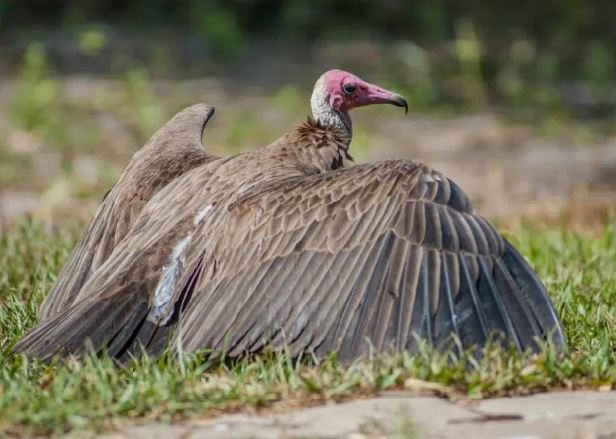News
Decline in vulture population poses danger to society – Wildlife Researcher

• Vultures are nature’s garbage collectors
The decline in population of vultures known in the local parlance as ‘pete or kokosakyi’ to a staggering 97 per cent predisposes society to diseases like cholera, rabies, botulism (food poisoning caused by bacteria) among others, which are mainly transmitted from infected wild and domestic animals.
Vultures which are nature’s garbage collectors are at a “very high risk” of extinction and their natural role of clearing carcasses and other organic waste found in the environment would not be felt.
Research and Project Officer of the Ghana Wildlife Society (GWS), Mr Joseph Kwesi Afrifa disclosed this alarming situation to this reporter to commemorate the International Vulture Awareness Day (IVAD) which falls today, September 3, 2022.
He said “Without vultures, decomposing dead and decaying matter will litter our environment and pose high risk to public health reminiscing a case in Indian 1994 Surat plague where carcasses left unattended among other sanitary problems, led to the spread of deadly diseases.”
This year’s (IVAD) theme “Vultures, our garbage crew” is to among other things highlight the importance of these birds, create awareness on the danger they face and garner support for their conservation.
On the importance of vultures, Mr Afrifa cited a recent research which said that up to about 70 per cent of carcasses left after the migration of wild beast from the Mara to the Serengeti in Tanzania were removed by vultures alone without any human intervention.
Vultures play significant ecological and economic roles in our environment, yet human activities such as non-selective poisoning, use of parts of vultures for rituals, trade in vulture parts for use in traditional medicines, persecution and habitat loss threaten their existence.
According to Mr Afrifa “another threat to vulture existence is when, some poachers, intentionally target the scavengers to cover up their activities so that they don’t hover to alert forest guards of the location of their crimes”.
The Ghana Wildlife Society (GWS), therefore, calls for vigorous education and adoption of the International Vulture Awareness Day (IVAD) nationwide, to sensitise the public to conservation of vultures to keep “our garbage crew” alive for future generations.
He said robust scientific research and technologies in monitoring vulture population with collaborative international conservation efforts would also go a long way in conserving vultures.
Mr Afrifa said that Hooded vultures were the most common vultures in Ghana, with others like the White-backed, White-headed, Rüppell’s and Egyptian vulture which had been recorded in different locations in the country.
“So anytime you see a vulture remember they are the ones keeping our environment clean from decomposing dead and decaying matter, they are environmental heroes not witches as some misconstrue”, he emphasised.
By Portia Hutton-Mills